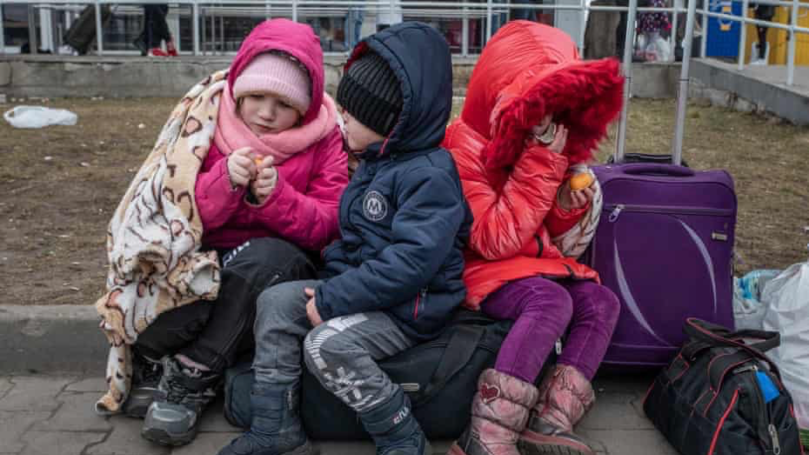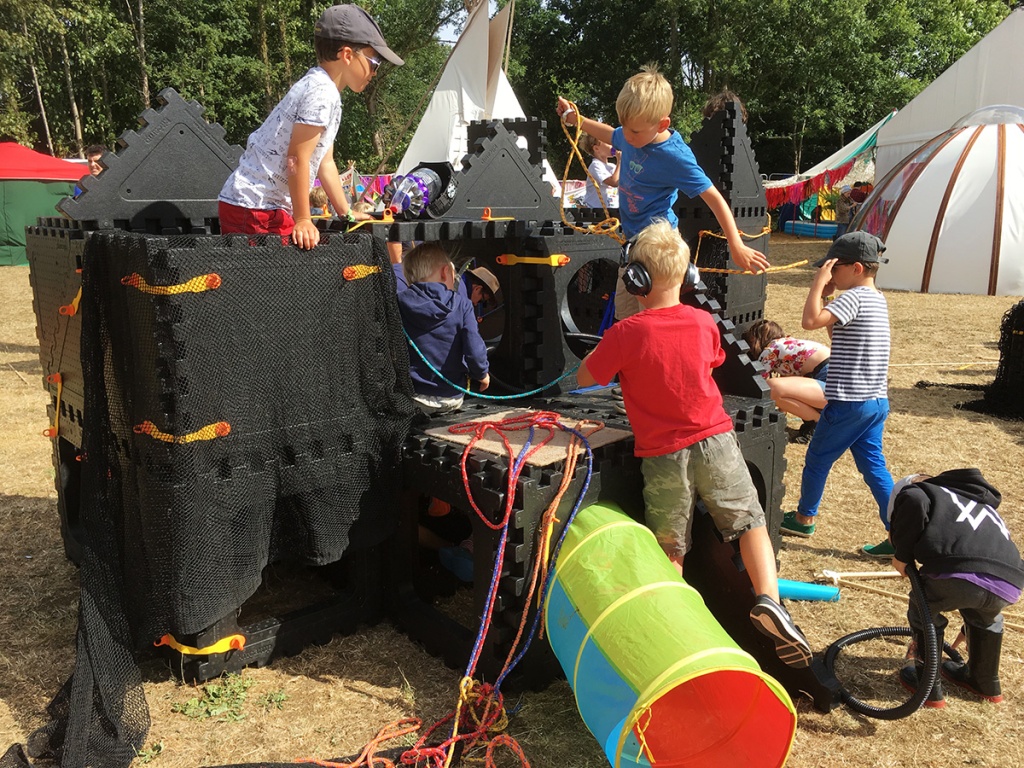
Over the past three months, I have been working diligently to get large-scale loose part play systems to children displaced by the invasion of Ukraine. It turns out this is extremely difficult. Here’s why,
Children’s right to play is often given lower priority than providing food, shelter, and medicines, even though play is crucial to children’s well-being, development, health, and survival in crisis circumstances.
Play helps refugee children who have experienced bereavement, violence, abuse, or exploitation to overcome emotional pain and regain control over their lives. Children use play to process their emotions. They need to do this while wounds are fresh, or they will harden to deep lifetime scars.
Millions of children have been displaced from their homes. But not just from their homes. They have also been displaced from their schools and playgrounds. When the fighting stops, it may be years before things are back to normal. Meanwhile, the Pop Up Play Systems will be there, keeping play alive and helping children thrive.

Rotary’s efforts in support of Ukraine
As one of the world’s largest humanitarian organizations, Rotary has made peace the cornerstone of our global mission. Many Rotarians are deeply concerned about the Ukraine crisis and especially want to help the children.
Donor clubs receive notification of the installation of their Pop Up systems. In addition, the recipient’s programs are asked to send photos back to the donors club so they can see the benefits.
Rotary Clubs in Ukraine and neighboring countries sheltering refugees will identify shelters and schools that need portable play apparatus.
Clubs apply for grants and earmark their donations to Pop Up Play for Ukraine. They also designate the shipping location, which may be the program or a location of the club’s choosing.
Systems for the displaced must be:
- Portable to go where needed
- Durable to last without failure
- Complex to fully engage kids
To soothe trauma, kids need:
- To feel and be secure
- To have a sense of control
- To connect with other kids
- To maintain long duration play periods
The Pop Up Systems
Having launched many play products and systems, I have learned that success requires a range of products. This is somewhat the same phenomenon as restaurants, which do better in a place that has other restaurants. Therefore, the business plan for Pop Up Play, is to present the only three systems that meet our criteria. (Imagination Playground Blue Blocks are functionally compatible but they don’t flat pack.)
Our research to date indicates that the process must start with a program or agency on the ground. For example, this is how the Rotary grants work. Reaching these programs appears to be as much a matter of finding people who know people. Our efforts going forward will be to trace down the leads we have in hand and see where it takes us.

Cas Holman has spent the last 18 Years designing for play, education, and imagination. The products and materials are manipulable parts and pieces which inspire constructive play, imaginative forms, and cooperative interactions between children.
The Rigamajig Basic Builder is a large-scale wooden building kit conceived for hands-on play and STE(A)M learning. Rigamajig products are now found in hundreds of schools, playgrounds, children’s and science museums, community organizations, libraries, maker spaces, and homes worldwide.
We will be sending the Basic Builder plus the Machine Set.

Kitcamp panels are engineered to be robust enough to support children and light enough for kids to carry around.
The simple assembly method, combined with the lightweight and strength, allows kids to quickly and easily build incredible dens, forts, houses, rockets, ships, or whatever they imagine.
Kitcamp® is a patented, disruptive, and innovative large-scale loose parts play solution to young children’s modern global challenges.
The basic idea of children having their own space to be, feel secure, and be lost in thought. What a simple way of gifting time to children.
The den as a ‘designated space’ offering privacy and a sense of control is the essential human need for secret spaces to withdraw to because they shelter ‘daydreaming.’


Since 2007 Marcus Veerman, CEO and Founder of Playground Ideas has been supporting communities around the world to build open-source playgrounds using local tools, materials, and skills.
He founded Playground Ideas after spearheading the construction of 40 bespoke playgrounds along the Thai/Burma border.
Playground Ideas has built 5,223 playgrounds in 143 countries and impacted 2,611,330 children.
Nudel KART is an outgrowth of the need he saw in his work.


